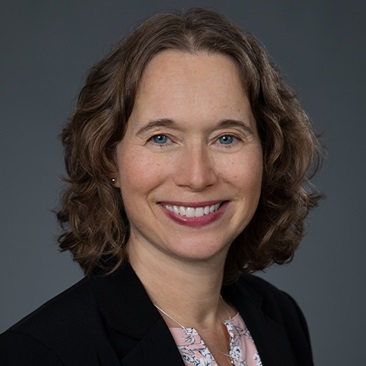Despair and Addiction
August 18, 2020
Sociologist Shannon Monnat is the new Lerner Chair, applying her interest in rural public wellness to the nation's burgeoning opioid epidemic.
Opiate abuse – from prescription pain pills to heroin – has taken center stage as a public health issue. Shannon Monnat, Maxwell's new Lerner Chair for Public Health Promotion, attributes the problem to socioeconomic conditions plaguing areas that have experienced widespread job loss, income decline, and downward mobility. "When jobs aren't there, hopelessness can lead to self-medication," she says.

Monnat integrates perspectives of demography, public health, and sociology to identify and understand population health and health disparities, with a particular focus on the consequences of social inequality on rural people and places. She's done extensive research about why some communities have high rates of opioid misuse and related deaths and others do not – expertise she frequently shares via media commentary.
In October, Monnat and two researchers from Penn State were awarded a $990,002 grant from the National Institute of Justice to study ways of impeding the illegal distribution of opioid drugs in Pennsylvania, where opioid overdose is now the leading cause of accidental death. They will analyze police arrest and seizure data and use community focus groups to identify and study networks of opiate distribution, locations of sales, and indicators associated with high and low opiate distribution neighborhoods.
"We hope this study can inform strategies for collaboration between police jurisdictions and local community organizations in combating the spread of illegal drugs," she says.
That's just the type of impact that inspired the creation of the Lerner Center for Public Health Promotion, established at Maxwell with a gift from Sid and Helaine Lerner to improve the health of the community. "Shannon's orientation as a sociologist and her study of how community conditions influence health marries well with Maxwell's emphases on citizenship and community engagement, and with the Lerner Center's mission," says Center director Thomas Dennison.
“When jobs aren't there, hopelessness can lead to self-medication.”
Shannon Monnat
Monnat joined Maxwell from Penn State, where she was assistant professor of rural sociology and demography. She adds to Maxwell's strong research team in health policy and management, which includes Douglas Wolf (aging studies), Sarah Hamersma (health and nutrition systems), Amy Ellen Schwartz (school nutrition), Leonard Lopoo (child and family policy), and Dennison (healthcare administration).
Another new addition to that team is Colleen Heflin, an expert in food security and welfare policy who has served as investigator on several federally funded studies of Supplemental Nutrition Assistance Program (SNAP) benefits and food security. She recently earned a grant from the University of Kentucky and U.S. De-partment of Agriculture, for example, to assess the relationship between SNAP participation and the probability of premature mortality among low-income adults and children.
"The Maxwell School is the strongest place in the country to do the work that I do," says Heflin, a professor of public administration and international affairs. "I've always been an interdisciplinary scholar and Maxwell is set up to encourage that type of collaboration."
Monnat concurs. As a scholar of social inequality and social demography, she is interested in the correlation and consequences of social disadvantage as they relate to health. The Lerner Center provides an ideal platform. While she hopes to extend findings from her Pennsylvania study to central and northern New York, she says the opioid epidemic is not the only public health crisis that needs attention.
"Disability, obesity, and poor mental health all affect our long-term economic sustainability and social well being. The underlying causes of many of these issues are deeply connected," Monnat says. "Social scientists are in a prime position to identify underlying social, economic, and policy-related mechanisms, and strategies to mitigate them."
By Renée Gearhart Levy
This article appeared in the winter 2018 print edition of Maxwell Perspective © 2018 Maxwell School of Syracuse University. To request a copy, email maxwellperspective@syr.edu.
Related News
Commentary

Apr 5, 2025
Commentary

Apr 4, 2025
Commentary

Apr 3, 2025
School News

Apr 2, 2025